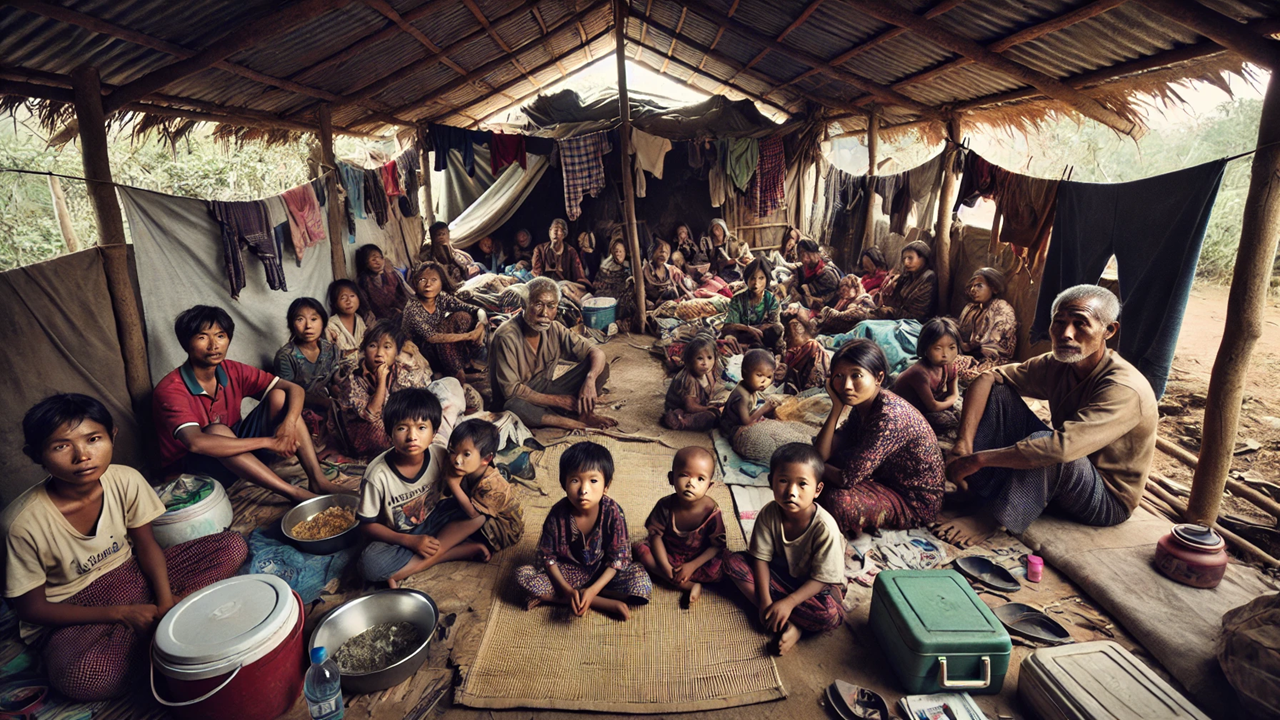Myanmar Military Escalates Violence Against Civilians, UN Reports Record Death Toll
An analysis of the conflict throughout 2024 found that as the military’s grip on power weakened, it launched relentless waves of retaliatory airstrikes and artillery shelling on civilian-populated areas.

Myanmar’s military has escalated violence against civilians to unprecedented levels, inflicting the highest civilian death toll since its coup four years ago, according to a report released by the UN Human Rights Office on Friday.
An analysis of the conflict throughout 2024 found that as the military’s grip on power weakened, it launched relentless waves of retaliatory airstrikes and artillery shelling on civilian-populated areas. The report also details a surge in forced conscription, arbitrary arrests, mass displacement, and a systematic denial of humanitarian aid, even in the face of natural disasters such as severe flooding and cyclones.
A Growing Civilian Death Toll
According to the Assistance Association for Political Prisoners (AAPP), at least 6,231 civilians, including 1,144 women and 709 children, have been killed since the military seized power in 2021. In 2024 alone, at least 1,824 civilians lost their lives, including 531 women and 248 children, marking a sharp rise from 1,639 deaths in 2023.
“After four years, it is deeply distressing to find that the situation on the ground for civilians is only worsening,” said UN Human Rights Chief Volker Türk. “Even as the military’s power diminishes, their brutality expands in scope and intensity,” he added, emphasizing that these attacks aim to control, intimidate, and punish the population.
Systematic Atrocities and Human Rights Violations
The report details acts of extreme brutality, including beheadings, burnings, mutilations, executions, torture, and the use of human shields—all carried out with impunity. Soldiers have attacked villages with no active conflict, likely as retribution for anti-military armed group advances elsewhere.
Deliberate targeting of civilian infrastructure, including schools, places of worship, healthcare facilities, IDP (Internally Displaced Persons) camps, and public gatherings, has led to mass casualties and widespread displacement. Communication blackouts and increased surveillance have also hindered lifesaving and rescue efforts, exacerbating the crisis.
Violence by Anti-Military Groups
While the military's actions have been the most egregious, the UN also documented abuses by anti-military armed groups, including allegations of torture, extrajudicial killings, sexual violence, and forced recruitment in areas under their control. “Although not comparable in scale, violence by these groups raises significant protection concerns for civilians,” the report states.
Rohingya and Rakhine State: A Crisis Within a Crisis
Türk voiced alarm over the deteriorating situation in Rakhine State, where the Rohingya remain caught between Myanmar’s military and the Arakan Army. “The Rohingya have suffered immensely as their villages were set ablaze, their youth forcibly recruited, and humanitarian aid cut off,” he said. Tens of thousands have fled to Bangladesh, and nearly 8,000 have risked their lives in perilous sea journeys in search of safety.
“As the Arakan Army consolidates control over Rakhine State, they must abide by international human rights law and ensure the protection of all civilians within their territory,” Türk urged.
Mass Displacement and Forced Conscription
Nearly 20 million people across Myanmar now require humanitarian assistance. UN figures indicate that over 3.5 million people are displaced—one-third of whom are children—though civil society organizations suggest the real number may be twice as high.
A major factor in last year’s displacement was the military’s policy of forced conscription, which has driven thousands of young people, including Rohingya, into hiding or exile. This mass exodus of working-age individuals (18-35) has deepened Myanmar’s economic crisis, leading to severe labor shortages and economic instability.
Calls for Global Action
Türk urged countries with influence, particularly those in the region, to take immediate action. He called for an end to the violence, full humanitarian access, the release of all political prisoners, and greater engagement with democracy and human rights advocates.
“Impunity for these crimes cannot continue,” Türk stressed. “The international community must ensure accountability for the atrocities committed, as any sustainable political solution must be grounded in justice. The people of Myanmar must never again endure the horrors they have faced over the past four years.”
- READ MORE ON:
- Myanmar
- Assistance Association for Political Prisoners










